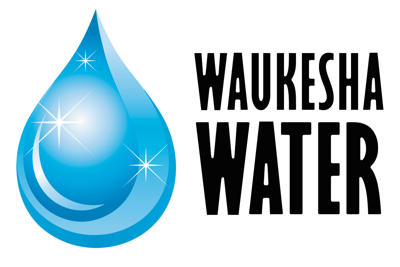WAUKESHA — Waukesha Water Utility has announced that the city’s transition to Lake Michigan water is expected to start Monday. The transition was originally scheduled to take place between Sept. 14 and 18, but officials pushed the date back after Waukesha residents requested a firm start time.
In a previous interview with The Freeman, Waukesha Water Utility General Manager Dan Duchniak said pushing the transition back to Oct. 9 also allows the utility and its contractors to "ensure the highest possible water quality during the transition and protect public health and safety throughout the process."
After doing some testing, WWU opted to purge the new aboveground reservoirs and refill them. This will help minimize potential changes to taste and odor during the transition.
WWU assures that this quality change is temporary and that the chlorine-like smell and taste is due to the higher levels of disinfectant used during the transition period. The water is still safe to drink and bathe in. The chlorine smell and taste will subside after about a month.
There is also the possibility of having red or discolored water during the transition period. This is because particles along pipe walls could be stirred up once WWU flushes its systems. Residents are advised to run their taps with cold water for a few minutes until the water turns clear. Residents should avoid doing laundry during this time as the particles in the water could tint clothing. Should one’s clothing take on a reddish tint, WWU recommends picking up IronOut or Red-B-Gone to undo the effect. The red or discolored water will clear up in less than one month.
WWU also recommends removing filters from refrigerators and reverse osmosis systems during the transition period as the particles in the water could shorten their lifespan.
According to WWU, dogs and cats are fine to drink the water during the transition period. However, Waukesha residents who own fish, reptiles, and amphibians should take precautions in order to ensure the health of their aquatic companions.
Easy Aqua Fish & Coral in downtown Waukesha has been offering advice to area fish owners since the details of the transition were released. They recommend cleaning tanks and aquariums now, so it’s one less thing to worry about during the transition period.
If space permits, Easy Aqua also suggests building up reserves of tap water. Aquatic pet owners can use five-gallon buckets or other large vessels to fill with tap water now, so water coming from the taps during the transition period won’t need to be used to refill tanks.
Transition period tap water should be avoided for use in tanks and aquariums. The higher levels of chloramine disinfectant can be harmful to aquatic pets. The water should be safe for aquatic pets about one month after the transition begins.
If aquatic pet owners are going to use water during the transition period, the chloramine must be filtered out. Easy Aqua recommends adding another carbon filter or using a high-quality solution to remove the chloramine, like Seachem Prime.
After the transition period ends, aquatic pet owners can start incorporating the new Lake Michigan water into tanks and aquariums incrementally. Switching all the water at one time could shock the animals.
WWU has been in contact with medical facilities in the area, but recommends that residents who do at-home kidney dialysis and similar water-based treatments contact their medical provider to determine best practice.
Once the transition period is over, there will be a subtle change to the overall taste of the water. This is because Lake Michigan water has a lower mineral content than groundwater. This change will be permanent.
Lake Michigan water is also 60 percent softer than Waukesha’s current groundwater system. This means that water softeners won’t be necessary once the transition to Lake Michigan water occurs. WWU recommends that residents remove their softeners and test out the new water without one for a little while. Should a resident decide they want to use their softener, that will be a personal choice and the softener must be optimized.
In August, The Freeman had a Q&A session with WWU General Manager Dan Duchniak about common questions regarding the upcoming transition. To learn more about the costs associated with the project, visit Q&A with Waukesha Water Utility’s Dan Duchniak.










